In Gaza They Don’t Even Bother to Call It Peace
For Netanyahu, as for Hamas, the life of a child born into the opposing “nation” has no value.
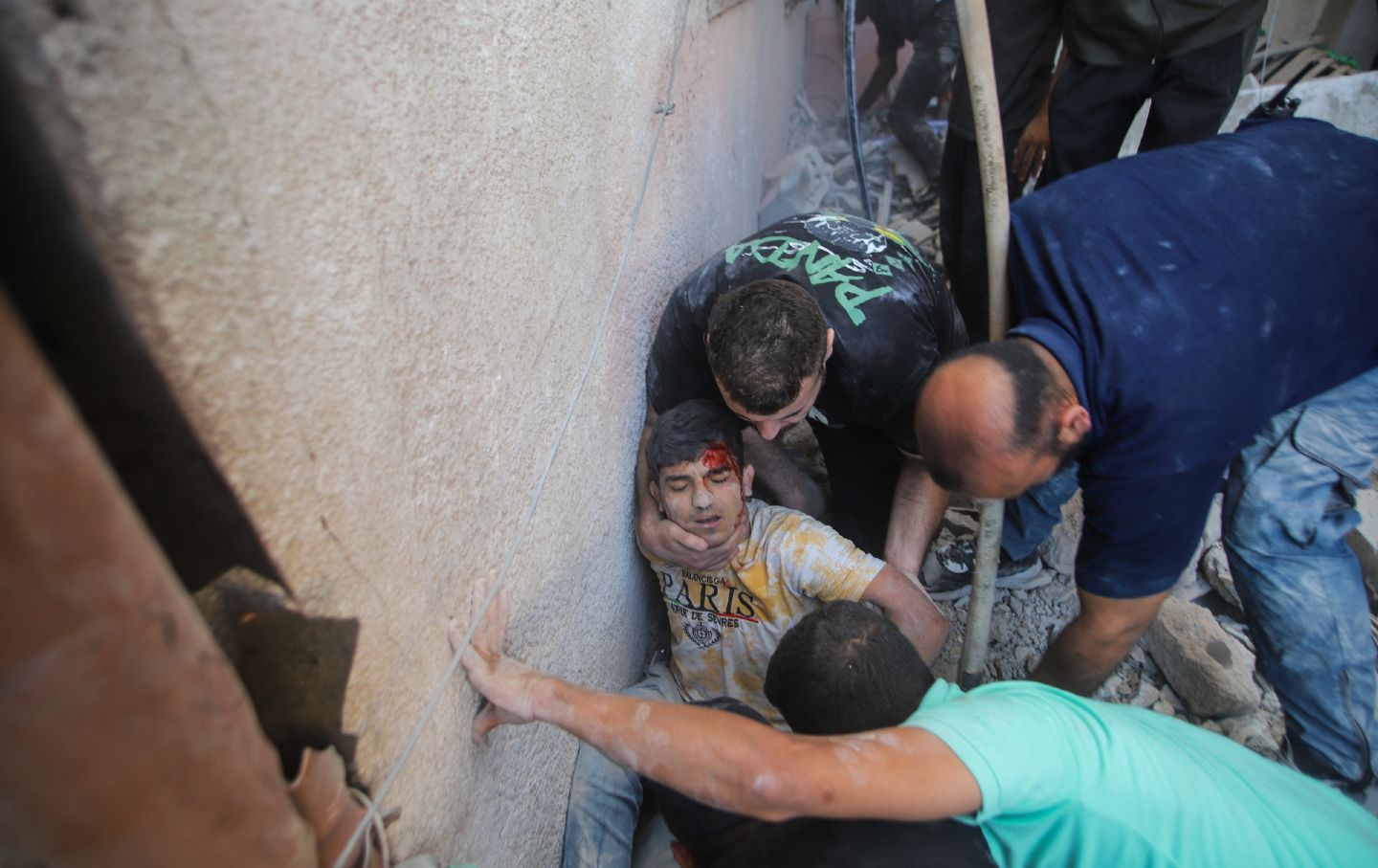
I was having sushi on Wednesday night in Los Angeles, sitting outdoors. All day long I’d been reading about the Hamas attacks in Israel and the Israeli bombings in Gaza. Now, sushi. What a disconnect. At the table next to ours was a young family we didn’t know. Their 14-month-old daughter, Birdie, was sitting in a restaurant high chair taking in the scene. This Birdie was a very alert child with wispy brown hair on a round head and intelligent, curious hazel eyes. She used her neck like a periscope so that she could see the world from every angle as she picked crispy bits off the tops of her mother’s sushi roll.
While I was eating my yellowtail, and Birdie munched and watched, I thought: Now, how much rage, anger, nihilism, and dehumanization would it take for a person to shoot Birdie in the head? Instead, you’d dash through flames to her cribside, grab Birdie up, and rush out of the burning house with the baby in your arms to the cheers of your fellow men and women.
Below Birdie’s table was the new family dog, Fritz, a Cavalier spaniel. Fritz was just the kind of dog I’d read about that morning, in Amira Hass’s transcription of a phone call she’d had with a woman in Gaza City during the bombing, published in Haaretz. Neighbors’ families had gathered in the one remaining house still standing in the zone as nearby apartment buildings crumbled beneath the bombs, and this one little dog lived in the house with all the people, now, everyone with hardly any remaining water and not much food and dwindling medicines. Like the people, the dog was terrified of the bombings, and he hadn’t eaten in days. His owner was carrying him in her arms all the time because she didn’t want to risk abandoning him there if they all had to evacuate in a rush. Birdie’s Fritz.
Then I turned my attention to myself. There I sat, now eating blue fin tuna. For a lifetime, I’ve paid taxes to the US government, and some of that money, in some way, has gone to pay for the bombs currently being dropped on the little dog and everyone else in his neighborhood, and on all of Gaza. Every four hours, the bombs fall, as if those brief intermissions were some kind of humanitarian kindness. The president of my country has promised Israel our unconditional support, with my money.
I’d also lived in Israel for four years as a journalist and young mother at the time when representatives of the two sides participating in all of today’s killing were involved in a quaint effort called the peace process. I knew what it was to fear a terrorist attack and to worry about my children’s security, and I also knew the strange ability of Israelis to simply forget about the Occupation whenever possible, and live as if Tel Aviv were Miami.
Ubi solitudinem faciunt, pacem appellant. Famously, this translates as “they make a desolation and they call it peace.” We used to quote this bit of compact eloquence by the Roman historian Tacitus during the Americans’ scorched-earth campaigns in Vietnam. It was also used to describe the wake of Hiroshima and Nagasaki. (Tacitus himself was writing about the behavior of the Roman Empire.) The quote has come up again many times when the Israelis have bombed Gaza. But this bombing, and the attack that provoked it, are different: Now they make a desolation, and they don’t even bother to call it peace. They call it annihilation. You can’t demand the evacuation of 1.1 million people in 24 hours, in a place with no exit, and call it peace. But that’s what Israel called for in advance of a possible ground invasion in Gaza. Peace is no longer a goal on either side.
Describing the siege now being launched against Gaza, Israel’s Defense Minister Yoav Gallant said: “No power, no food, no gas.” Israel Defense Forces spokesman Daniel Hagari said that the country’s impending attacks on Gaza would be unprecedented in their violence, and that’s saying something. When the IDF is finished, Hagari said, Gaza “will be something else.” A desolation. We see it already in photograph after photograph of gray craters and rubble.
The anger, revulsion, and indignation of Israel is wholly understandable, after what Hamas’s militants did in the kibbutzim near Gaza and at the Supernova rave. But the inability of Israel’s leaders to respond with any sign of balance, sobriety, or maturity is more than disturbing. It’s criminal. And it’s dangerous. Its precedent, of course, is George W. Bush’s disproportionate and incorrectly targeted military response to the attacks of September 11.
And it was not always thus. During the peace process, when I lived in Jerusalem, it was not rare to hear a bomb go off and discover that dozens of people, usually all Israelis, had been killed by a Palestinian suicide bomber on a bus, or in a pizza shop, or in a market. Israeli forces then went after associates and masterminds, and probably also picked up a lot of people who had little to do with the particular situation. They razed the homes of the families of the killers. But they didn’t bomb Gaza or the West Bank, where many of the bombers lived. And thus, in spite of the acts of militants, a semblance, at least, of a conversation could continue between Palestinians and Israelis.
Now, it’s different. Why? In part because Prime Minister Benjamin Netanyahu, flummoxed by huge and regular protests against him and under continuing indictment, was asleep at the wheel of Israel’s intelligence and military when Hamas broke holes in the barriers surrounding all of Gaza and moved into Israeli territory.
Netanyahu is pounding Gaza into the ground to show that—although he has proven an unbelievably negligent steward of Israeli security—he sure can drop bombs on Palestinian civilians. It’s almost as if he’s been revived and invigorated by the Hamas attacks. As Alon Pinkas wrote in Haaretz on Friday, “Netanyahu is on brand: no responsibility, no accountability, no remorse.” Pinkas is talking here about the prime minister’s responsibility for the security of Israel, but he might equally apply this to Netanyahu’s responsibility toward humanity in Gaza.
According to the Netanyahu mindset, there can be no Israeli villains where the Palestinians are concerned. I once heard an Israeli mother express this very well after a soldier was killed in a suicide bombing. “There is nothing more innocent,” she said, “than an Israeli soldier.” For Hamas, on the other hand, even the foulest deed committed against Israeli civilians is a cause for celebration, as we saw last week, because for Hamas, there is no possibility of an Israeli victim. Even a kibbutz baby is an oppressor. Equally for Bibi and his cohort, every Palestinian baby is a future terrorist. On both sides, it seems, the life of a child who is born into the opposing “nation” is not valuable. It’s not just that Birdies don’t matter—they are justifiable targets. This week, both sides have abundantly proven this.
Popular
“swipe left below to view more authors”Swipe →It’s clear that the immediate results of Hamas’s rampage have not been positive for the Palestinians. Israel of course is not cowed, and thousands of Palestinians, especially children—who make up more than half of the Gaza population—will die in the coming days. However, in the long run, Israel’s extreme and (even in response to such a horrific inciting incident) disproportionate response may finally discredit it with its Western supporters, may finally shame them. Already, Biden has cautioned Israel to “operate within the rules of war…the rules of war…and there are rules of war.” Not exactly a full-throated warning, but something. For the moment, though, Gazan civilians continue to die.
Meanwhile, back in LA, the sun is setting. Birdie’s mother extricates the baby from her high chair, straightens the ruffles at the hem of her daughter’s little brown sweater, and gives the dog’s leash to Birdie’s father. And off they go.
More from Amy Wilentz
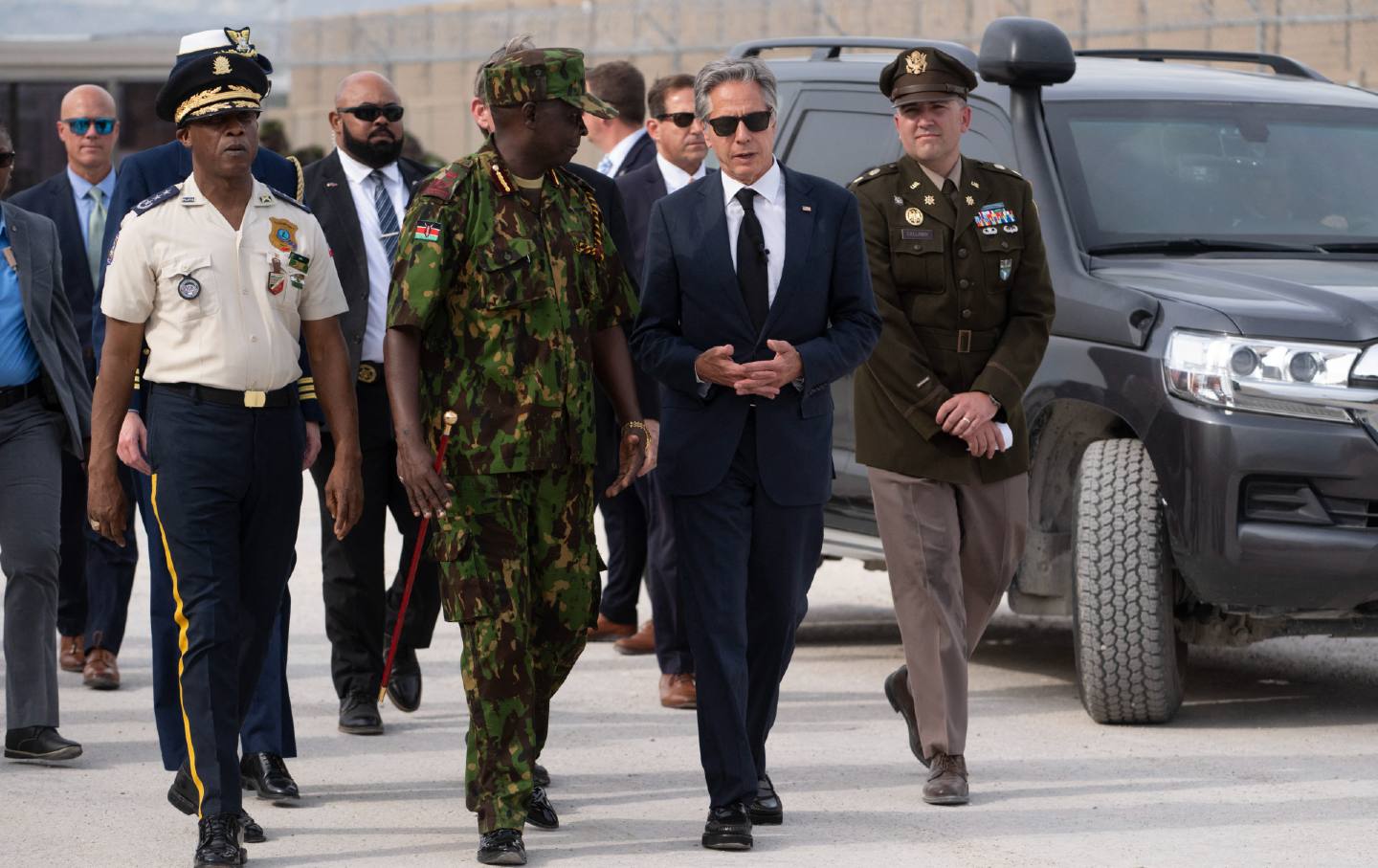
JD Vance’s Slanders Are Far From the Worst Thing the US Has Done to Haitians JD Vance’s Slanders Are Far From the Worst Thing the US Has Done to Haitians
After years of strenuously ignoring the country's agony, Secretary of State Antony Blinken finally visited Haiti last week. For five hours.
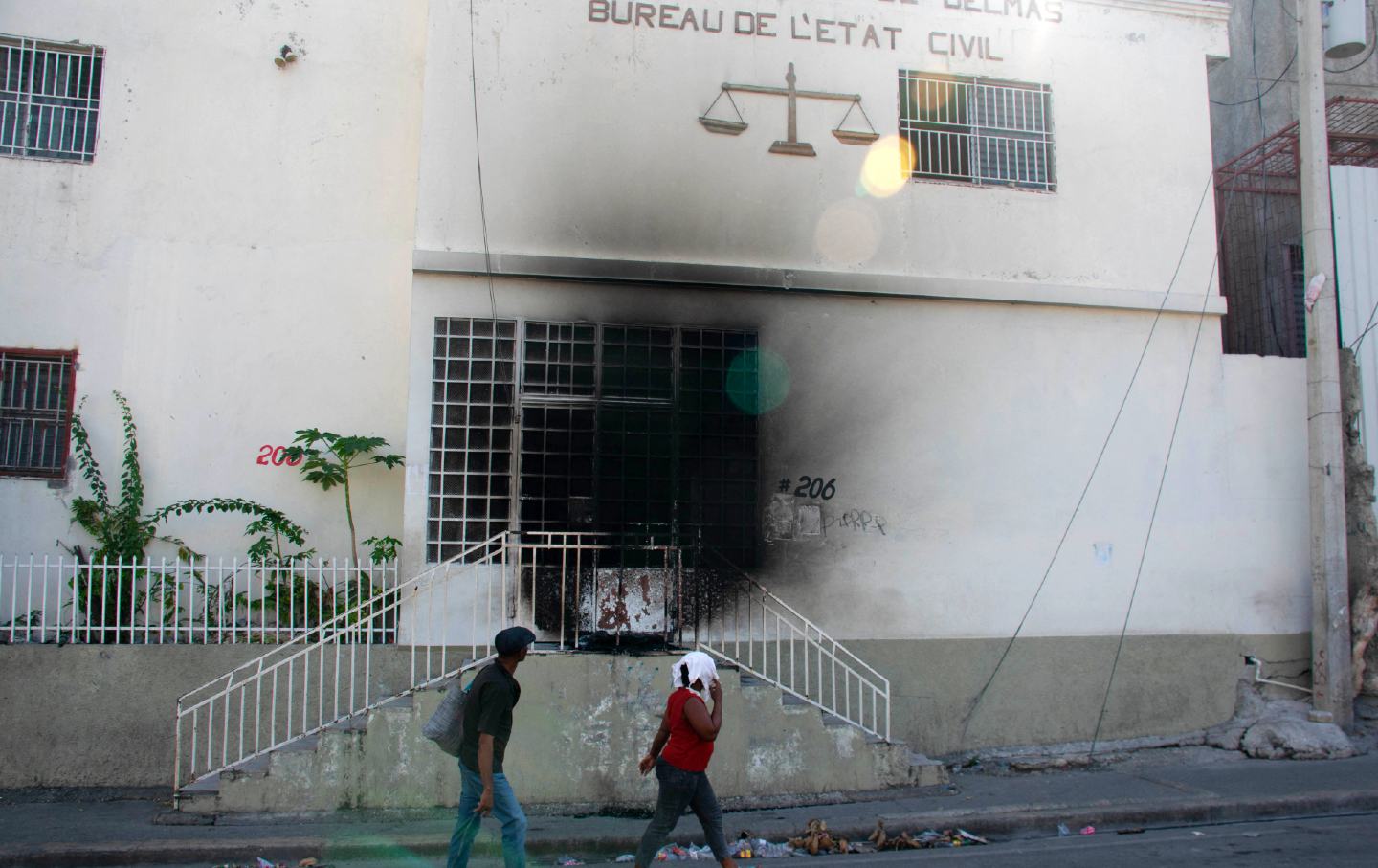
Haiti’s Hour of Deliverance or Despair Haiti’s Hour of Deliverance or Despair
Gangs assert their patriotism while the latest international rescue plan teeters between failure and a possible way forward.
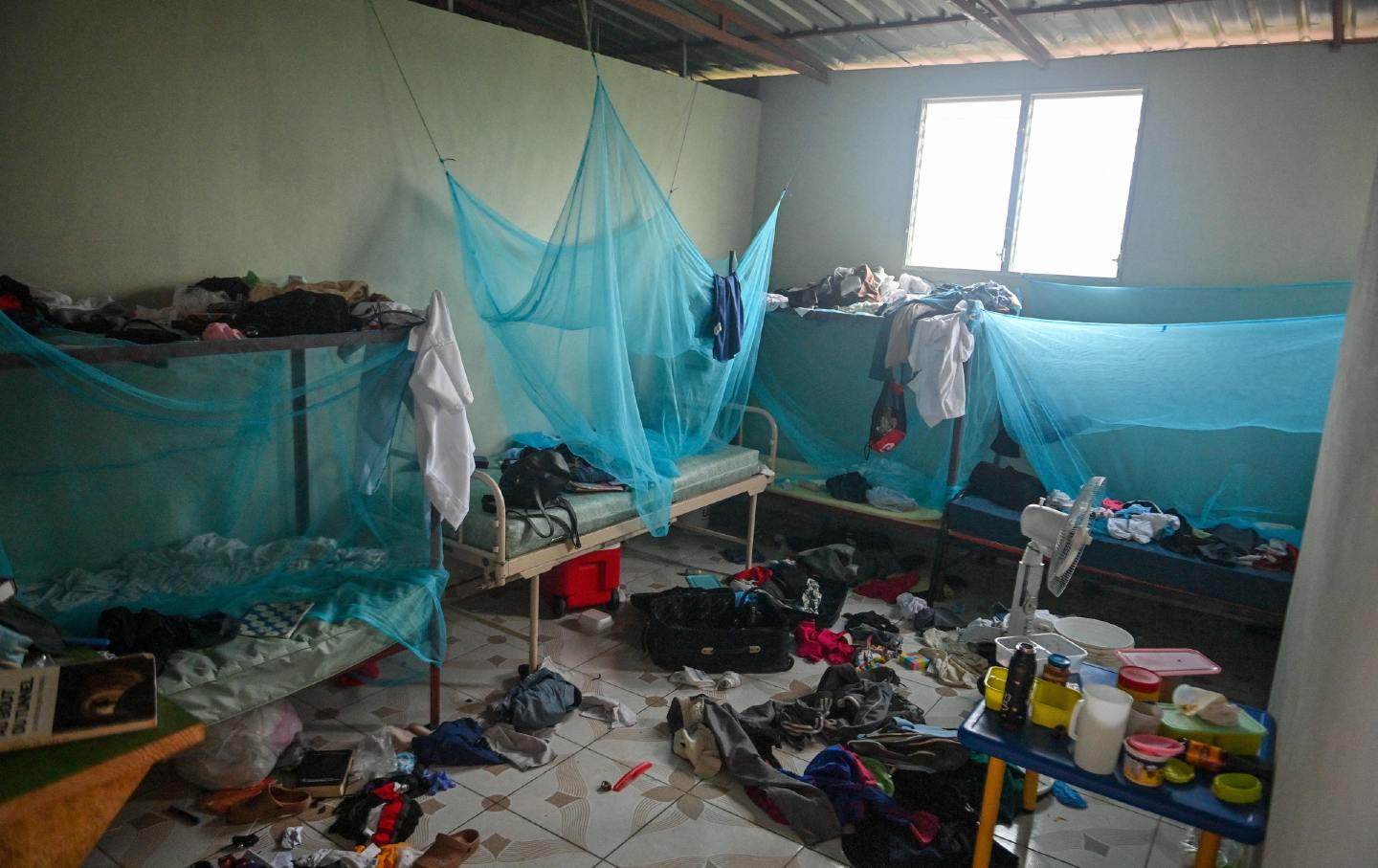
Why Is the US Paying Kenya to Clean Up the Mess We Made in Haiti? Why Is the US Paying Kenya to Clean Up the Mess We Made in Haiti?
The Biden administration likes to talk about democracy, but when it comes to the disaster unfolding a few hundred miles from Miami, democracy is apparently far too dangerous.
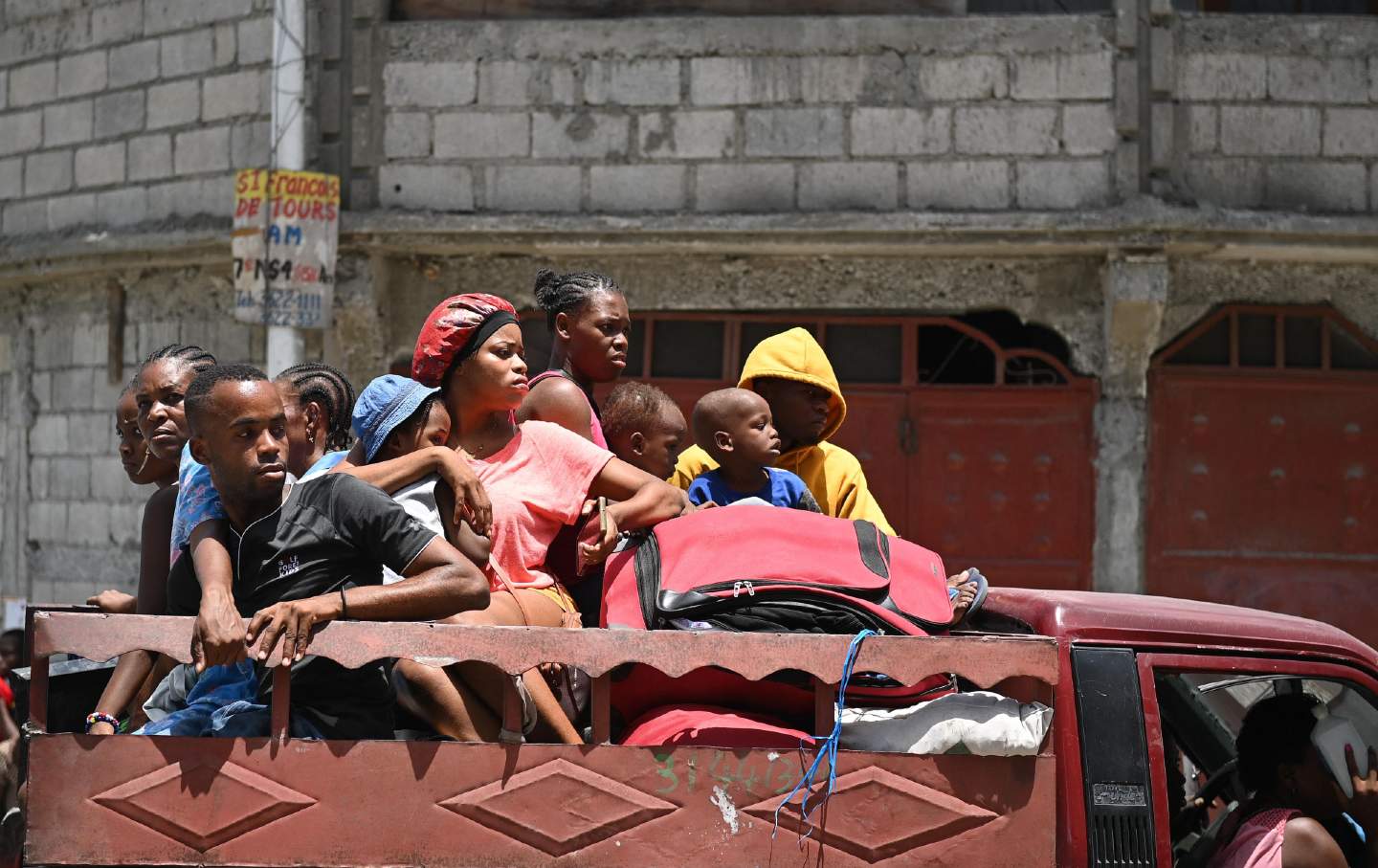
The Biden Administration Cuts and Runs From Haiti The Biden Administration Cuts and Runs From Haiti
After more than a century bleeding the country, installing and abetting corrupt dictators, and suppressing democracy, the US government now advises Americans to flee.
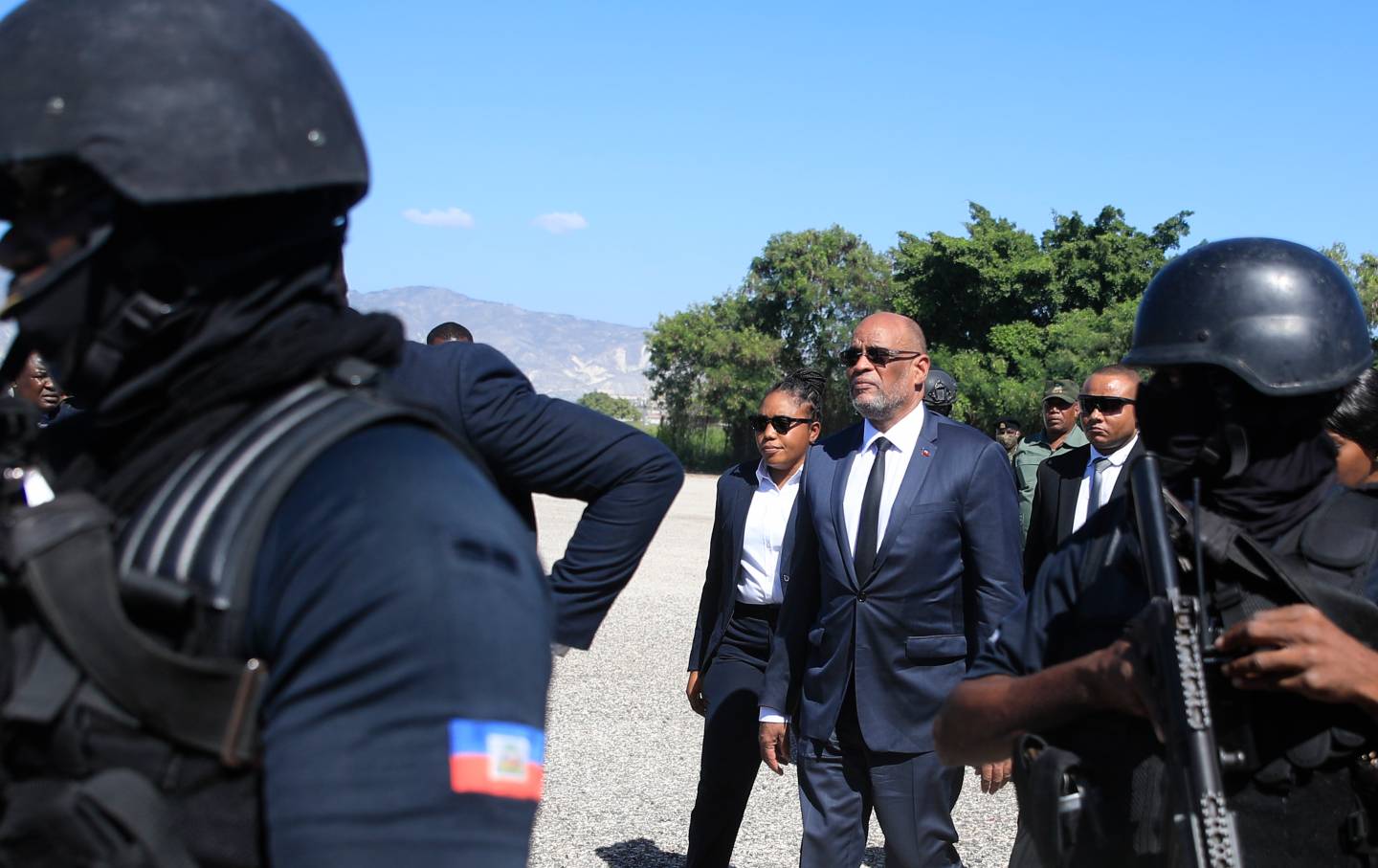
Haiti, April 2023: Soon There Will Be No One Left to Kidnap Haiti, April 2023: Soon There Will Be No One Left to Kidnap
The deadly consequences of the Biden administration’s policy of no policy.
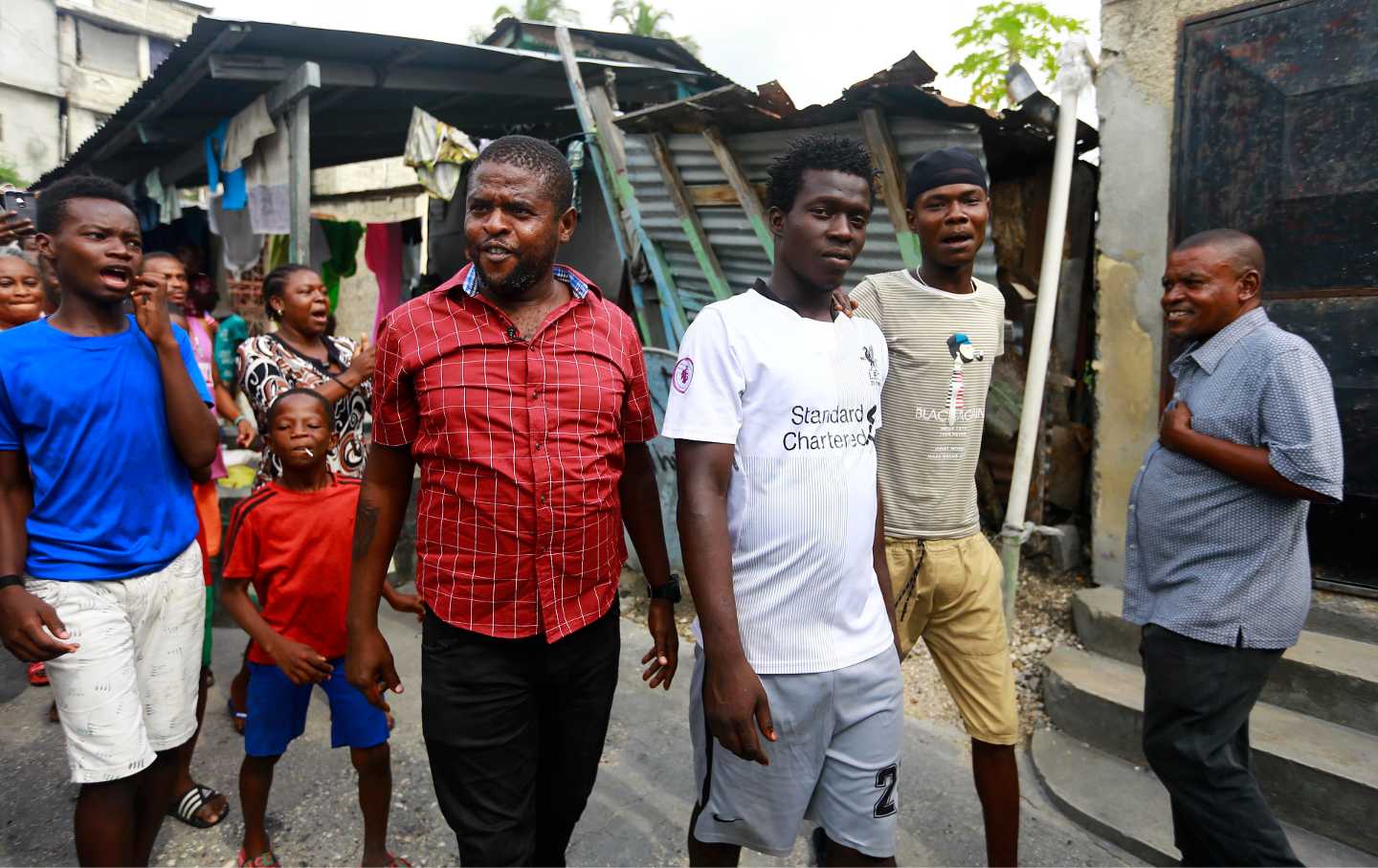
Will the Haitian Crisis Lead to Yet Another Military Intervention? Will the Haitian Crisis Lead to Yet Another Military Intervention?
With gangs holding the country hostage, and violence spinning out of control, the US and the UN play pass the parcel.


